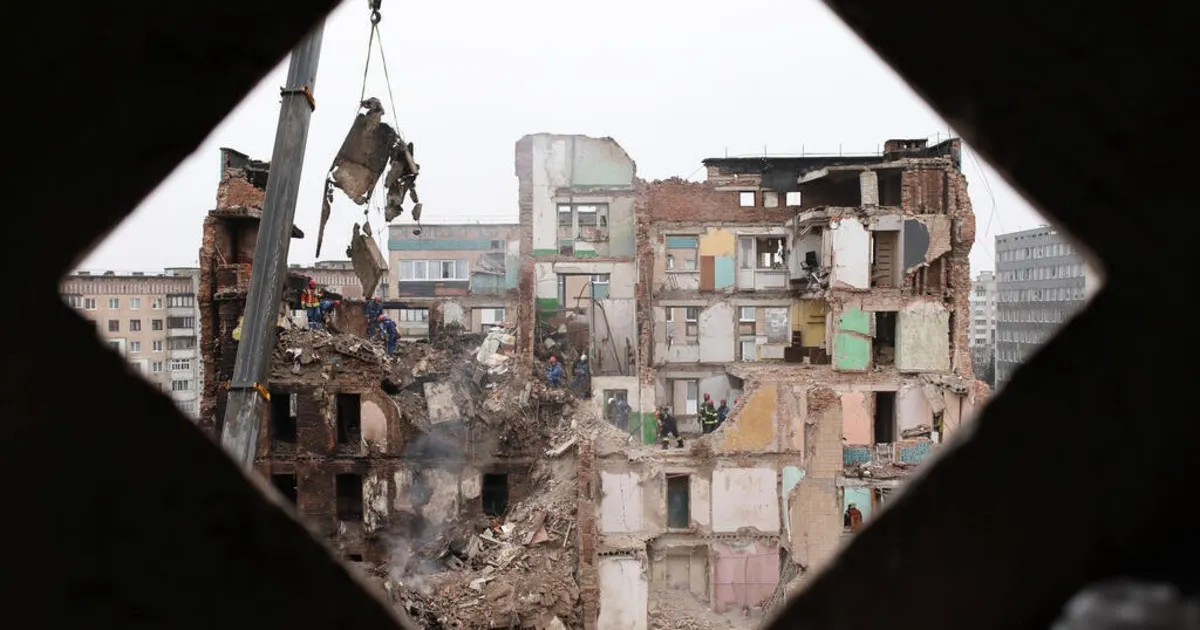
The recent 28-point peace plan proposed by the U.S. for Ukraine has been recognized as a foundational framework that necessitates further discussion and refinement, according to Western leaders present at the G20 summit in South Africa. This critical gathering saw representatives from the Group of Seven (G7) and various European nations convene in Johannesburg to deliberate on the implications of the U.S. peace plan amidst the ongoing conflict in Ukraine, which has now entered its fourth year.
The leaders from the European Union, Germany, France, Britain, Canada, the Netherlands, Spain, Finland, Italy, Japan, and Norway issued a joint statement highlighting the essential elements of the initial draft of the peace plan. They emphasized that while the plan holds potential for a just and lasting peace, it is merely a starting point that requires significant enhancements. The leaders collectively asserted that the draft is a basis that requires additional work to align with the realities on the ground.
The 28-point plan, which was dispatched to both Kyiv and Moscow, proposes several contentious stipulations. Among these is the requirement for Ukraine to relinquish control over its eastern Donbas region and Crimea, as well as to renounce its aspirations for NATO membership. These proposals echo many of Moscow's longstanding demands while offering limited security guarantees to Ukraine, raising concerns in Kyiv and throughout Europe.
Ukrainian President Volodymyr Zelenskyy expressed alarm at the plan's implications, stating that Ukraine might be forced to choose between defending its sovereign rights and maintaining crucial American support. German Chancellor Friedrich Merz echoed this sentiment, asserting that peace cannot be brokered without the involvement and agreement of the countries directly affected by the conflict.
Former President Donald Trump, who did not attend the summit, expressed his desire for a prompt response from Zelenskyy regarding the peace plan by the upcoming Thanksgiving holiday in the U.S. Trump asserted that the proposal is not a final offer and emphasized the urgency of reaching a resolution. He stated, “The Ukraine war with Russia should have never happened,” underscoring his belief that a resolution is overdue.
A Ukrainian delegation is set to meet with a U.S. delegation in Switzerland to further discuss the proposed peace plan. However, European leaders have cautioned against hastily finalizing a peace deal, emphasizing the principle that borders must not be altered by force. In their statement, they raised concerns regarding proposed restrictions on Ukraine's military capabilities, which could leave the nation vulnerable to future aggression.
Russian President Vladimir Putin acknowledged that Russia has received the text of the peace plan, indicating that it could serve as a foundation for a final settlement. However, he lamented that substantive discussions regarding the plan have yet to occur, attributing this to the U.S. administration's inability to secure Ukrainian consent. Meanwhile, Zelenskyy, on a solemn occasion commemorating the Holodomor—a devastating famine caused by Stalin—reiterated Ukraine's commitment to defending its sovereignty and independence against Russian aggression.
As preparations for discussions in Switzerland unfold, Rustem Umerov, a former defense minister, noted that Ukrainian representatives approach the negotiations with a clear understanding of their national interests. High-ranking officials from the U.S. and European nations, including Secretary of the Army Dan Driscoll, are expected to participate in these crucial talks, which are pivotal in shaping the future of Ukraine and its relationship with Russia.
In conclusion, the 28-point peace plan serves as a critical juncture in the ongoing conflict, with Western leaders emphasizing the necessity of a comprehensive and inclusive approach to ensure a sustainable resolution. The forthcoming discussions in Switzerland will be crucial in determining the path forward for Ukraine and its allies.